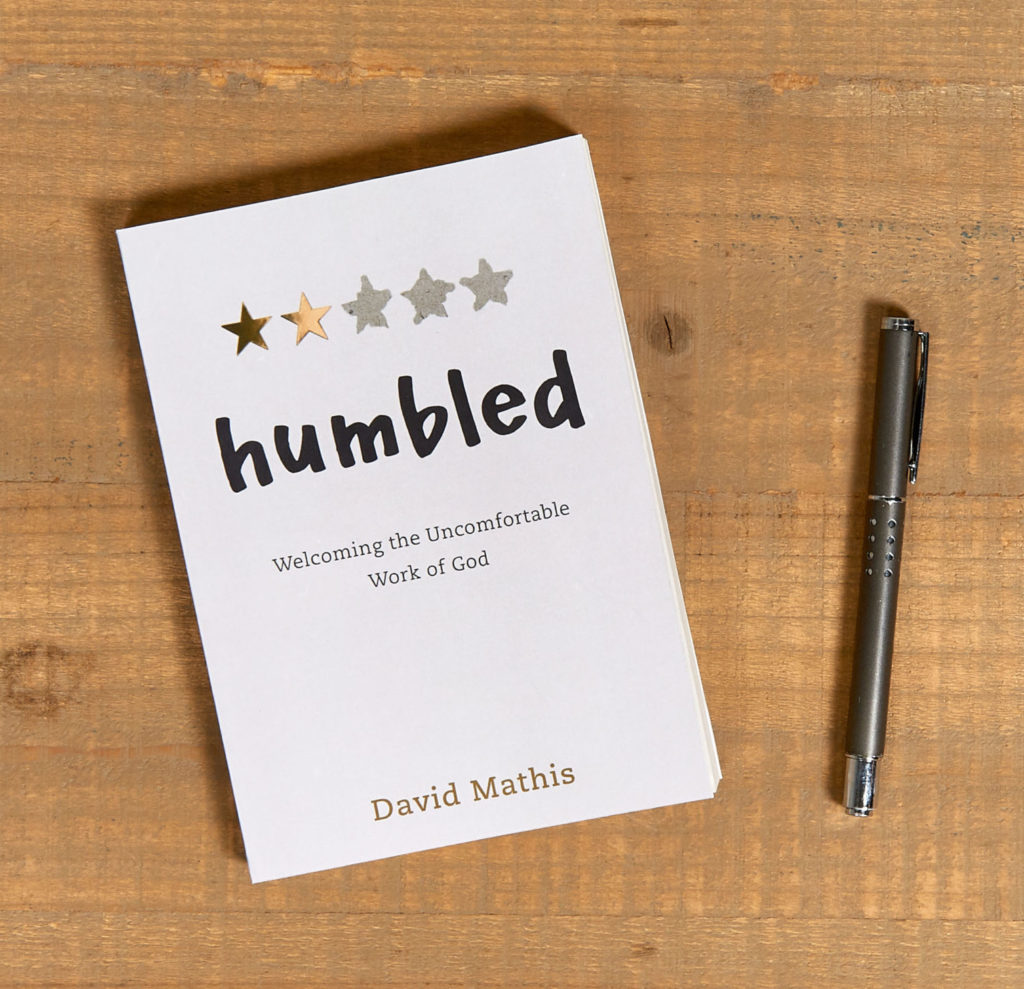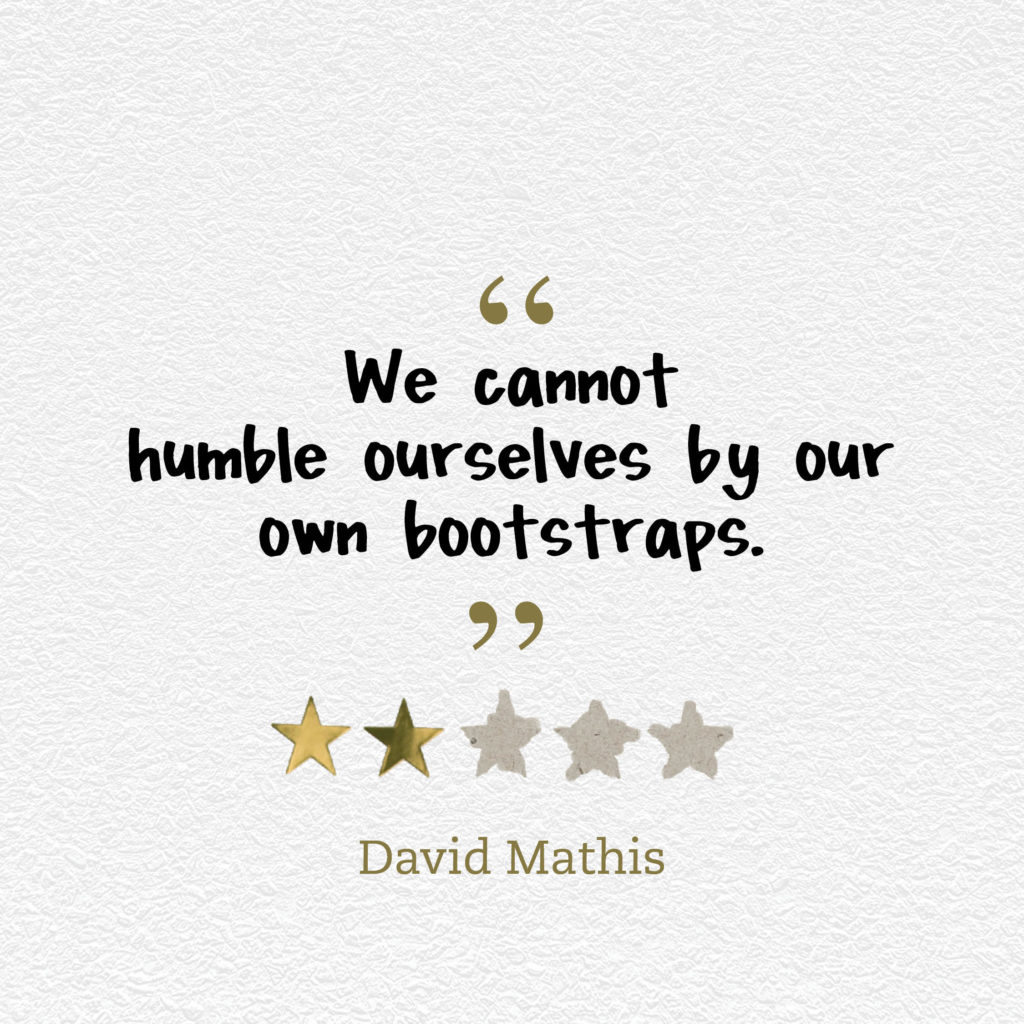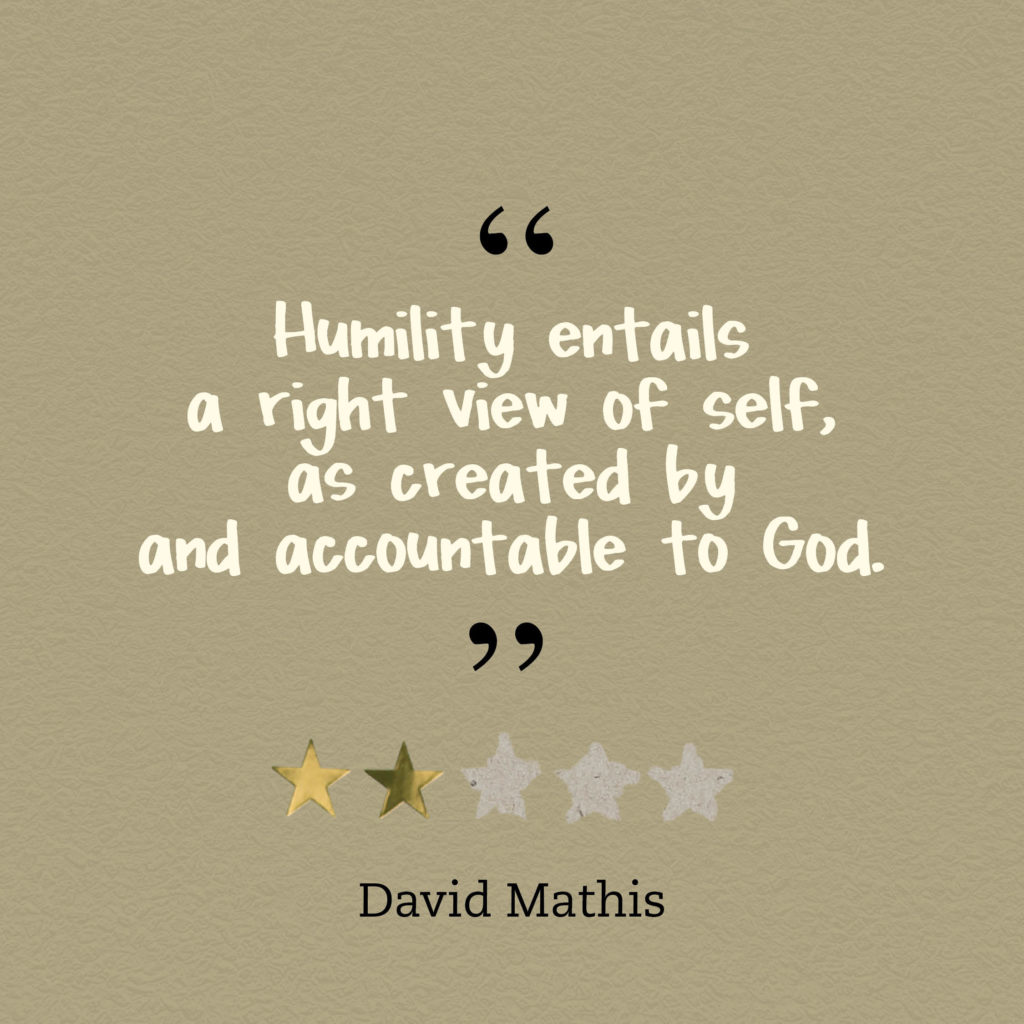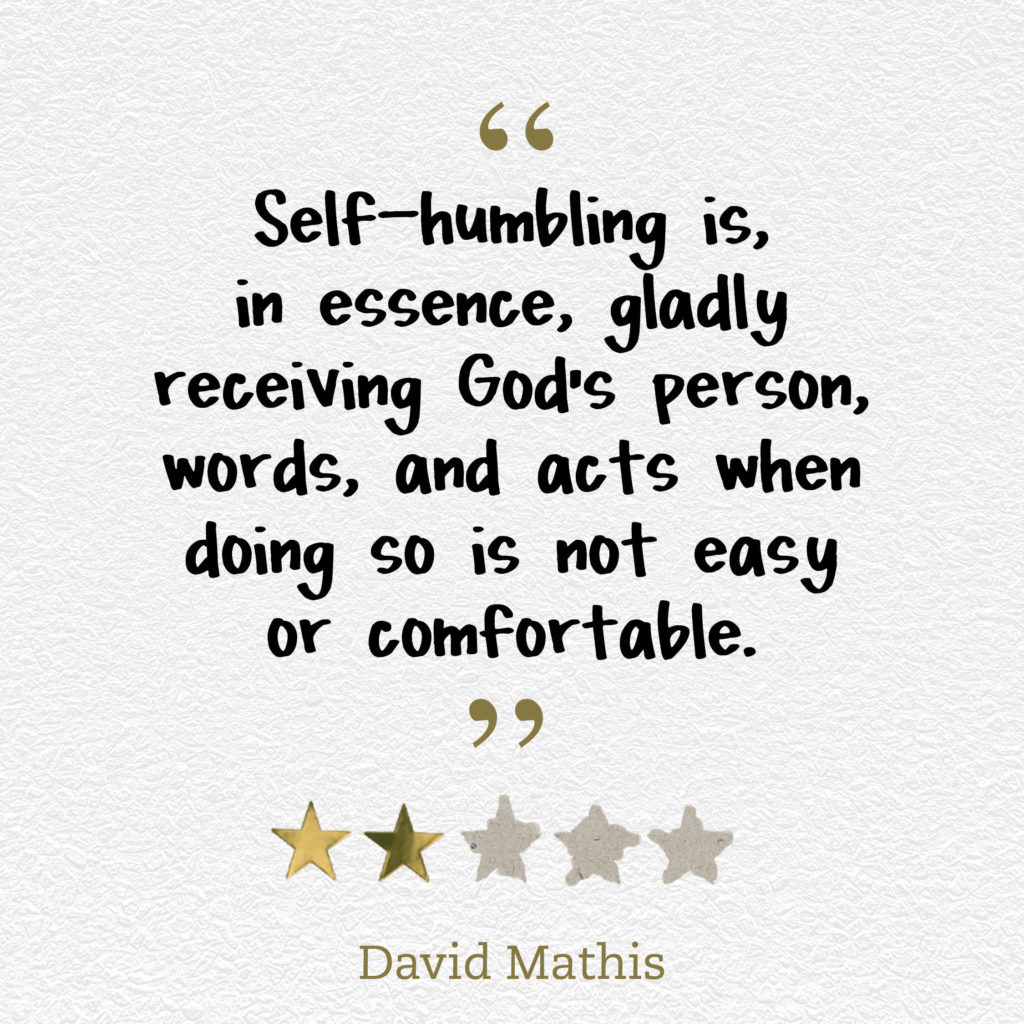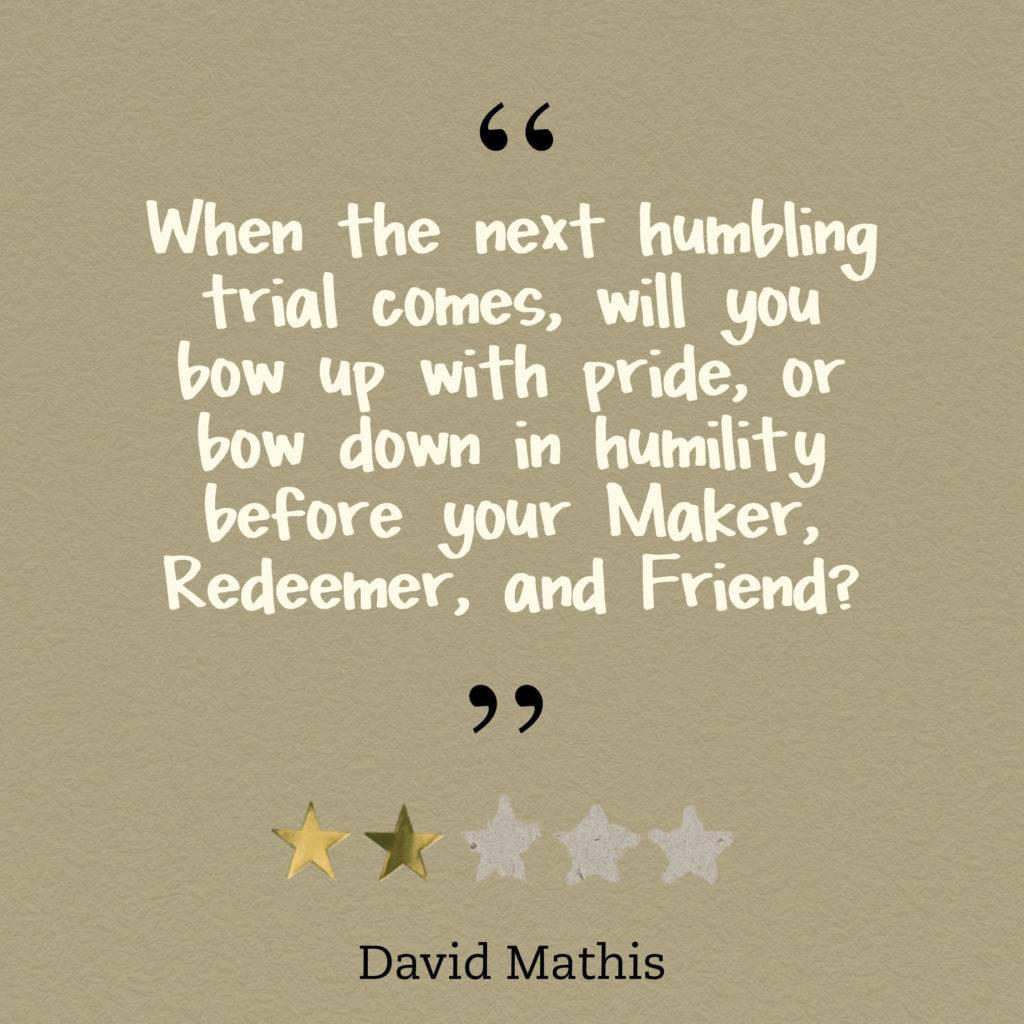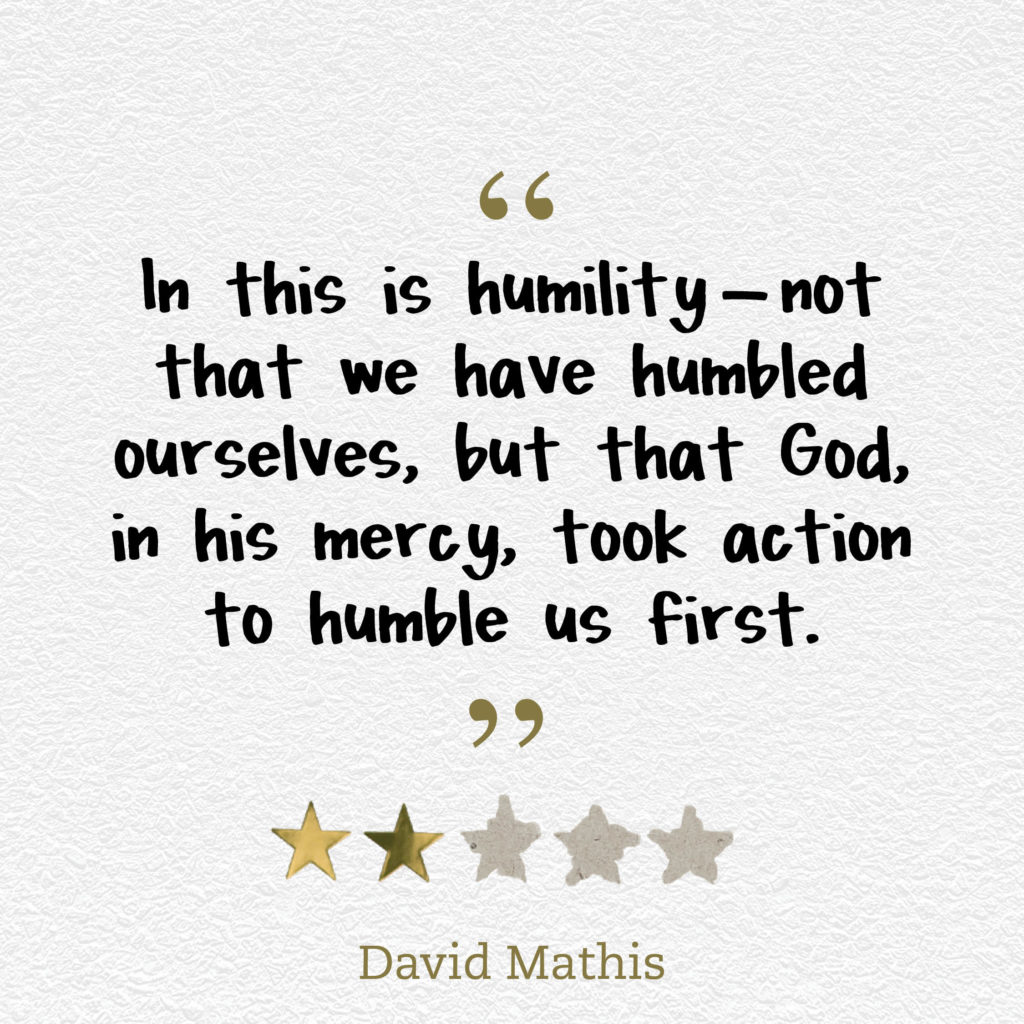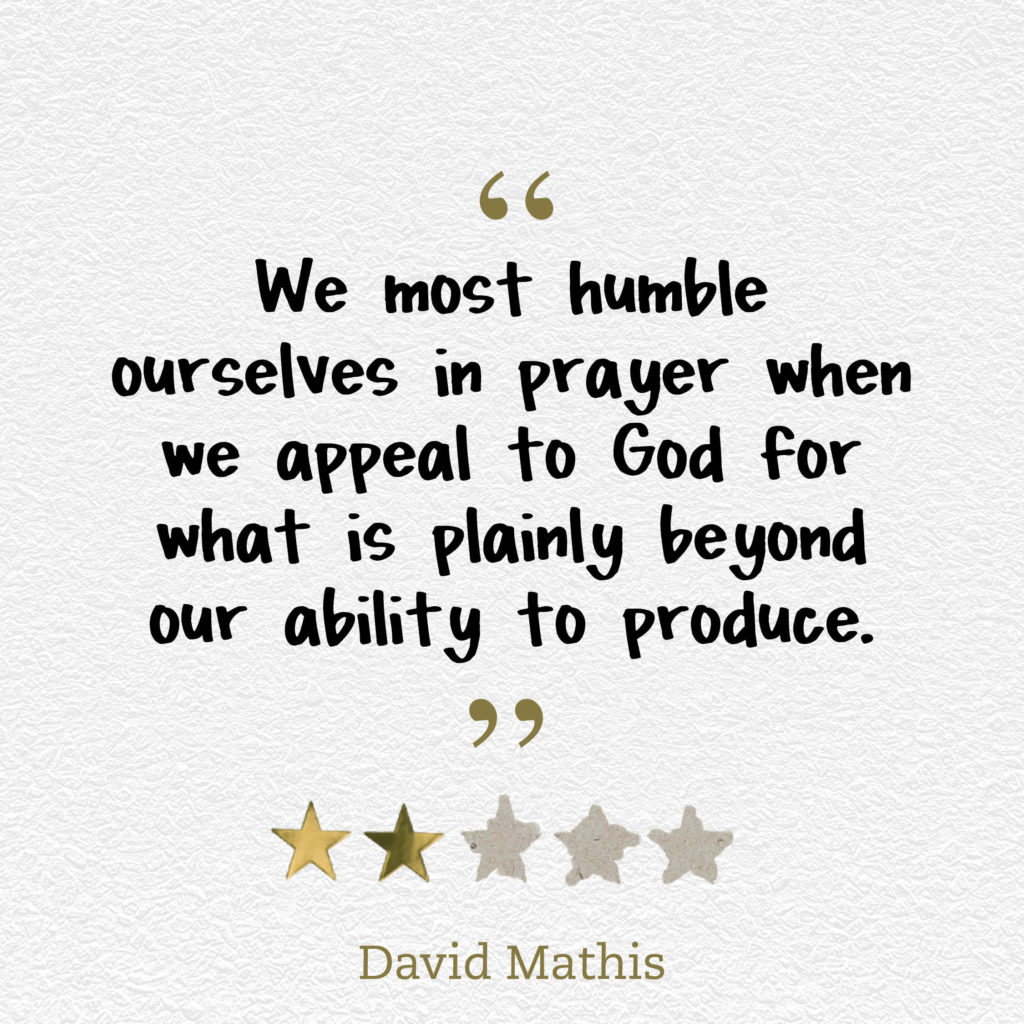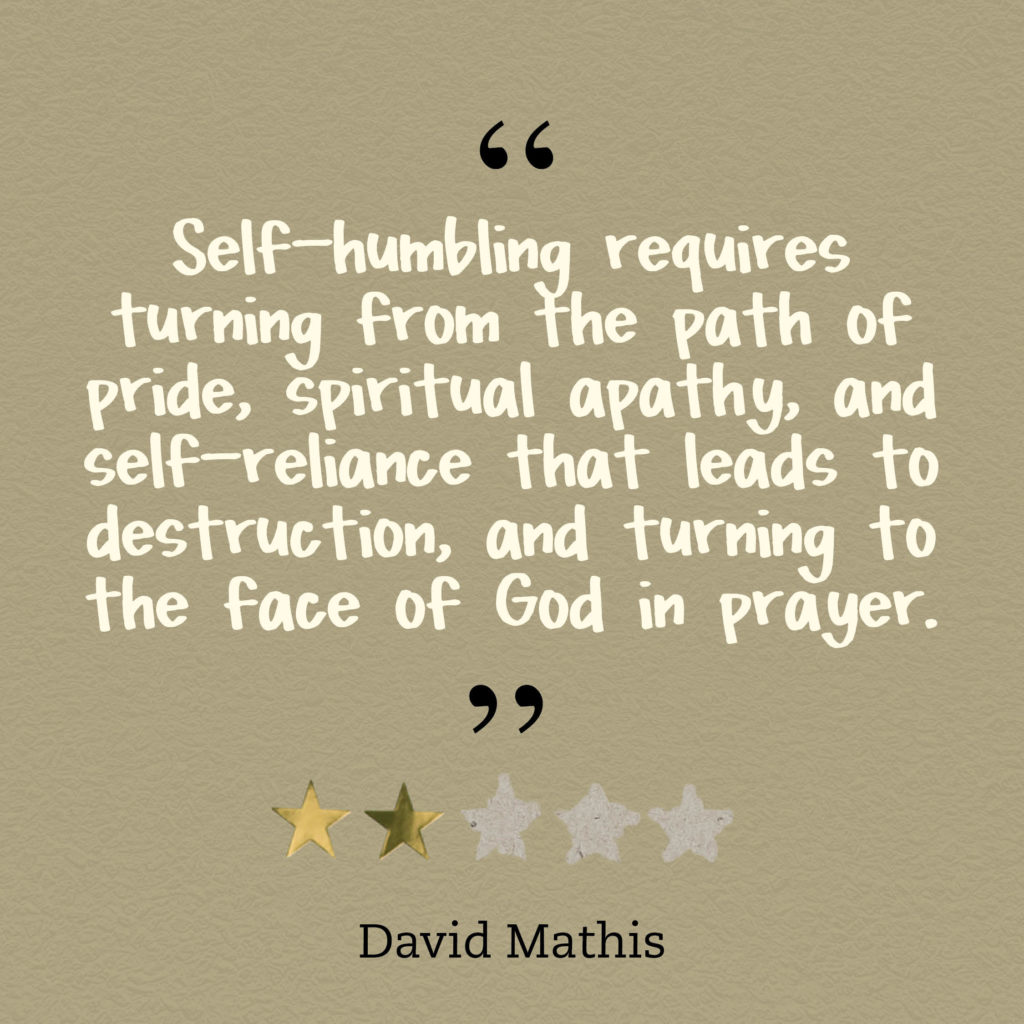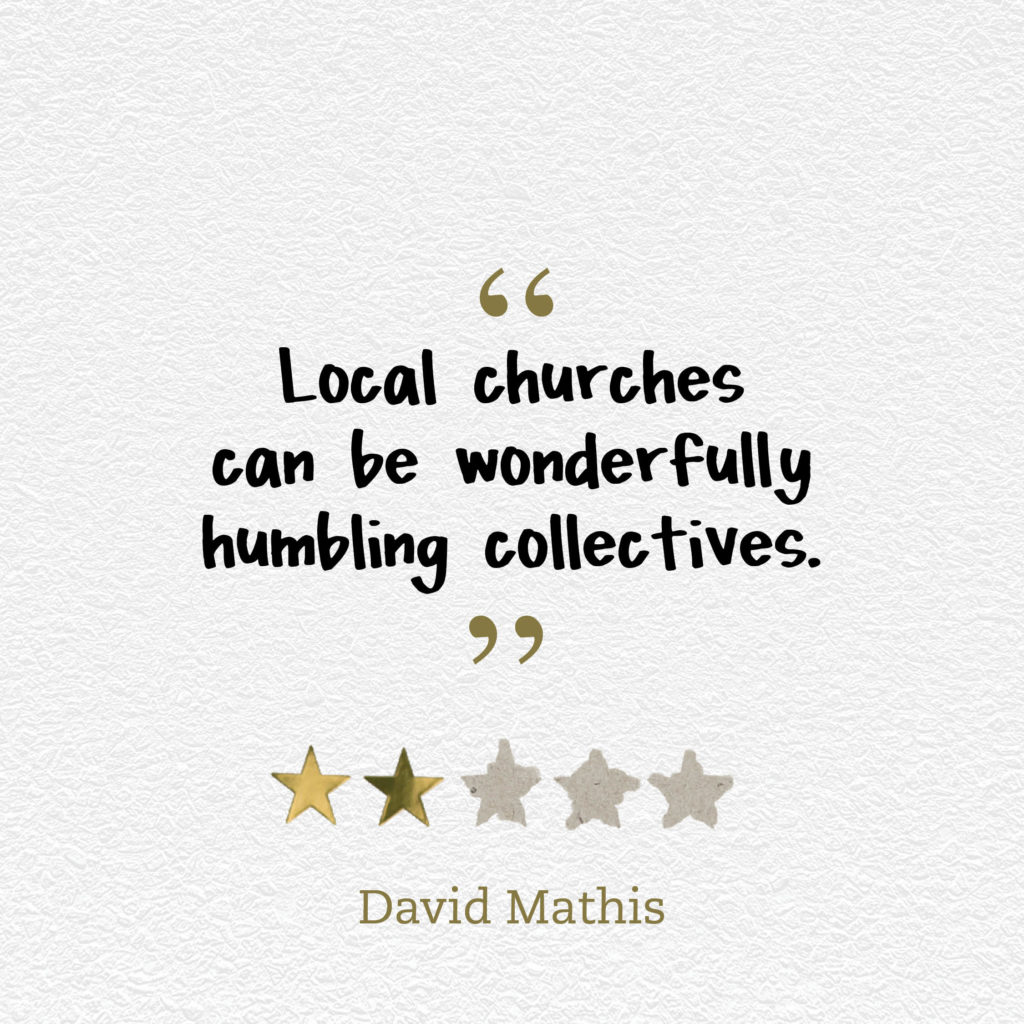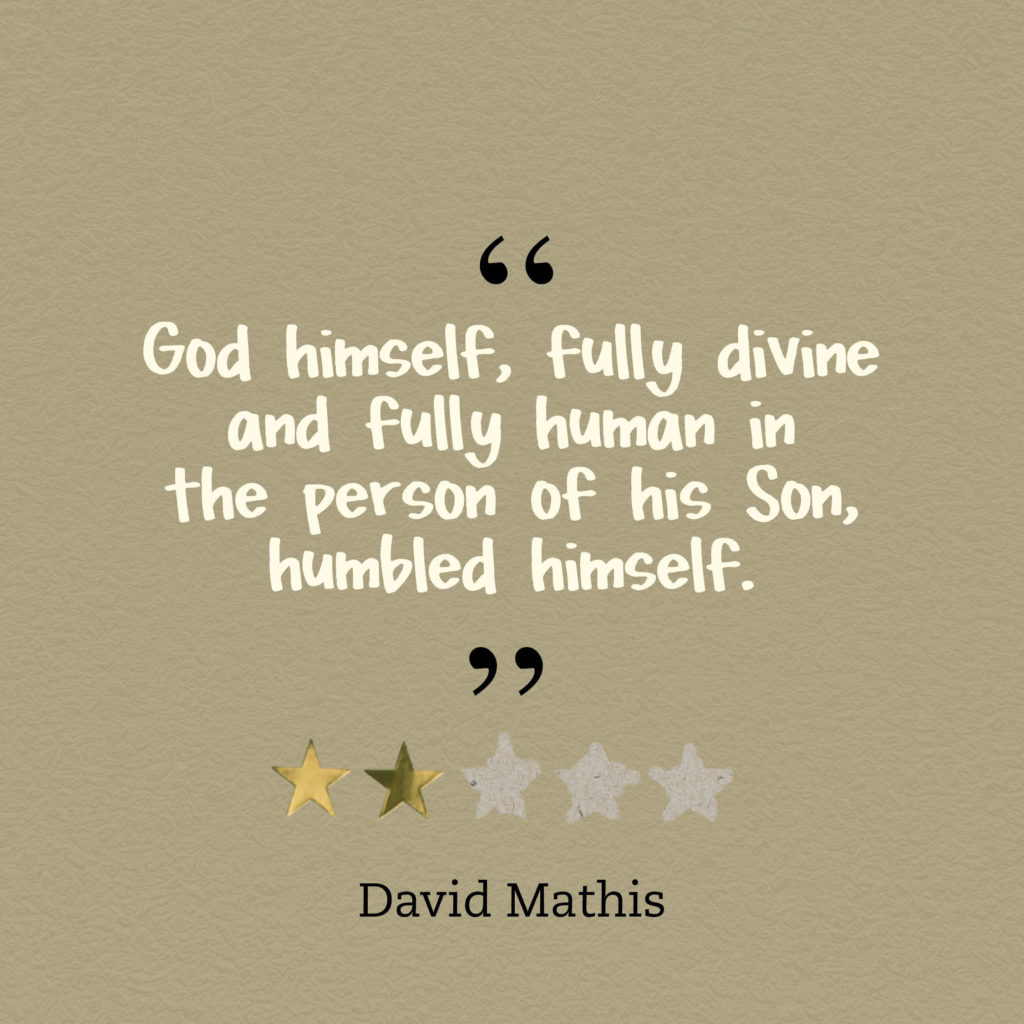Humbled sample chapter
about
How do I humble myself?
Humility, according to the Bible, is not something we can just up and do. Both the negative and positive examples of Scripture—from Pharaoh to Rehoboam, from Josiah to Ahab, from Hezekiah to Manasseh, and even to Christ himself—teach us that humility first comes from the hand of God. He initiates the humbling of his creatures. And once he has, the question confronts us: Will you receive it? Will you humble yourself in response to his humbling hand, or will you kick against him?
This concise, accessible study of Scripture’s humble-self language uncovers two surprising lessons about the pursuit of humility in the Christian—both what we cannot do and also what steps we can take.
what people are saying
press inquiries
For press inquiries regarding Humbled,
please contact [email protected]

